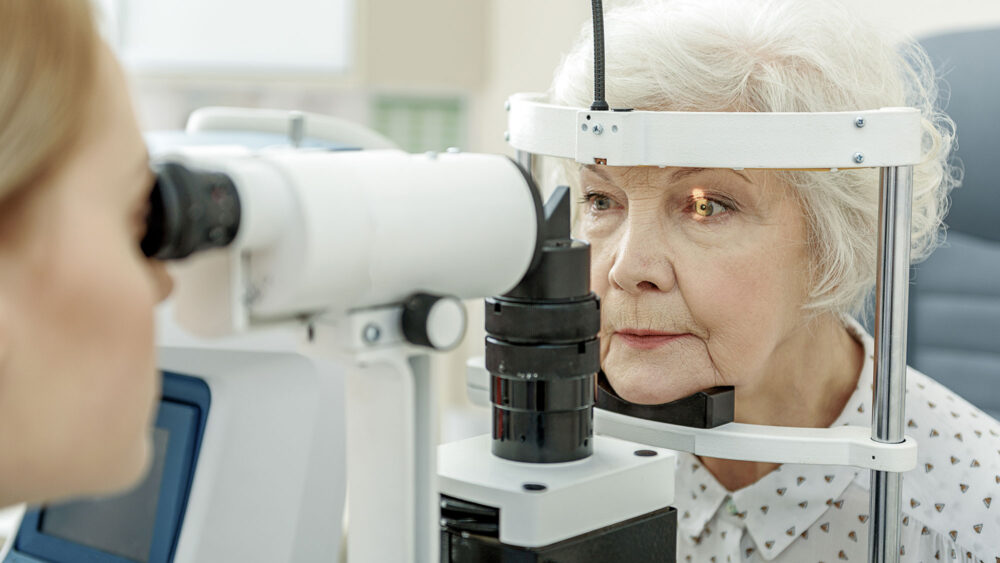
Glaucoma, the most common cause of total blindness worldwide, is caused by losing retinal nerve cells when the eye’s optic nerve is damaged. There are two types of glaucoma:
- Open-angle glaucoma. It is the most common kind where the pressure builds slowly, and vision loss happens gradually. Its symptoms include blind spots in your peripheral vision and tunnel vision in advanced stages.
- Closed-angle glaucoma. Although rare, its symptoms happen suddenly. It is the most dangerous type and requires urgent medical attention. Its symptoms include; migraines, blurry vision, intense eye pain, nausea, and halos around light.
Diabetic patients who have managed the disease for a long time are at risk of developing glaucoma. This is because high blood sugar levels increase the production of fibronectin that blocks the eye’s drainage system, hence, glaucoma.
Diabetic retinopathy has certain risk factors which make patients susceptible to glaucoma. For instance, fluctuations in blood glucose levels will weaken the retina’s blood vessels, damaging them. When these blood vessels are damaged, abnormal blood vessels grow. They block the eye’s natural drainage system, increasing the pressure in the eye, hence causing glaucoma. This condition increases with factors such as:
- Advanced age.
- Fluctuations in blood sugar levels.
- High blood pressure.
Patients with diabetes may experience increased nerve cell apoptosis, hence diabetic retinopathy, which significantly increases the risk for glaucoma. Diabetic patients often experience a reduction of blood flow, thereby causing intraocular nerve damage. It is because the long-term rise in blood sugars damages blood vessels in the eyes.
The situation is not that bleak since researchers have found that some medications for managing diabetes can protect patients from glaucoma. The medications GLP-1R (Trulicity and Rybelsus) prevent glaucoma in diabetes patients. This new study, led by researchers at the University of Pennsylvania’s Perelman School of Medicine, gives hope for diabetes patients who may already be experiencing retinopathy.
In a recent study on diabetic medication, researchers examined data from 1961 on diabetic patients who used the drugs against those who did not. The findings showed that the medication GLP-1R significantly helped to reduce a patient’s chances of developing glaucoma. A recent study also showed that medications aid in the prevention of retinal ganglion cell death and neuroinflammation in mice, thereby proving that the medication can prevent glaucoma in diabetic patients.
Diabetic patients can protect their eye health to prevent glaucoma in the following ways:
- Carefully manage your diabetes by following your diabetes care plan to the tee to keep the blood sugars at a safe range.
- Regularly go for an eye examination with dilation annually.
- Exercise regularly.
- Avoid smoking.
- Treat high eye pressure by using the prescribed eye drops or medication as the doctor tells you.
Glaucoma usually doesn’t have specific symptoms in its early stages, so regular eye checkup is crucial for diabetic patients. Dilated eye exams are recommended to check for pressure in the eyes, vision loss, the thickness of the cornea, and the angle at which your eyes drain fluid.
The treatment options for a glaucoma diagnosis are eye drops and, when need be, prescription glasses. Allentown Optical, an independent optical lab, has a vast array of optical services for your patients’ vision needs. You can contact us here.
